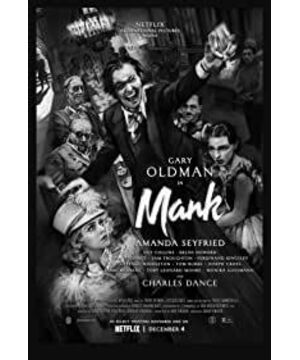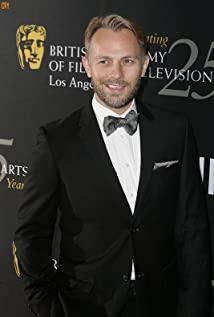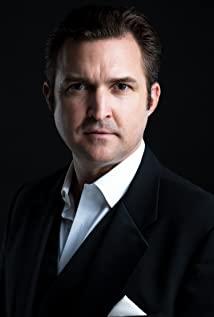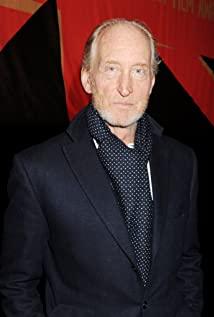1. Finch's new film: another "Once Upon a Time in Hollywood"
According to foreign media reports, since "Gone Lover" in 2014, David Fincher, who has no plans to shoot a feature-length film, will direct a biopic "Manke". The film tells the story of Herman Mankiewicz and Orson Welles writing the screenplay for Citizen Kane. In order to maintain the atmosphere of the classic Hollywood period, the film will be shot in black and white, and at the same time, this film will also be the first collaboration between two Oscar-level creators, David Fincher and Oldman.
The script for "Mank" was written by David Fincher's late father Jack Finch during his lifetime, and it mainly tells the chaotic process of screenwriter Mankiewicz's creation of "Citizen Kane". There is no doubt that "Citizen Kane" is one of the greatest films in the history of cinema. As a director, screenwriter and actor, Orson Welles, the film and television genius, has no need to repeat its influence, but for Herman Mankiewy Strange, presumably many fans will feel unfamiliar.
In fact, Mankiewicz is also a genius. Born in 1897, Herman Mankiewicz is a well-known Hollywood filmmaker. He won the Academy Award for Best Original Screenplay for writing "Citizen Kane" with Orson Welles. In addition, Herman Mankiewicz also participated in the production of many classic films, such as "The Wizard of Oz", "Pride of Yankee", "Gentlemen Prefer Beauty" and other films, and once again won the Oscar for "Pride of Yankee" Nominated for the Best Original Screenplay Award.
2. The Birth of a Masterpiece: Turned Out to be a Bad Deal?
The creation of "Citizen Kane" began with an accident in 1939. In 1939, Mankiewicz broke a leg in an accident, and while he was hospitalized, Wells, who had worked with him on a radio drama, came to see him, and the two began to come up with a story. Mankiewicz's story was inspired by the then American "newspaper king" William Randolph Hearst. Hearst had a mistress named Marion Davis, who was also a popular Hollywood star. His nephew Charles Ryder (who wrote "Gentlemen Prefer Beauties" and "Eleven Arhats") is Mankiewicz's friend.
Through this relationship, Mankiewicz was often invited by Hearst to spend weekends on San Simeon Island, and he mastered a lot of materials about Hearst's life, and Mankiewicz's early experience as a journalist in the newspaper industry also greatly Helped him with a lot of detail in Citizen Kane. In the film, some of Kane's speeches are almost exact copies of Hirst's speeches.
However, in order to avoid legal troubles, both Mankiewicz and Wells denied that the story was based on Hirst and that the filming was done in secret. The film was screened internally in Hollywood before its release, and the news reached Hearst. As a result, Hearst Newspapers, which occupies half of the American media, completely blocked Citizen Kane, and even threatened to block other RKO films. Wells's only gamble is to show the film in a small area to spread word of mouth. In the end, the high evaluation of the industry peers allowed RKO to withstand the pressure and let the film be released smoothly in 1941.
3. Signature controversy: The struggle between pride and stubbornness
After the film was released, "Citizen Kane" caused a lot of controversy over the screenwriter's attribution. The first draft of the screenplay was completed by Mankiewicz, and Wells polished and finalized it. But Wells changed the script so much that it was completely out of the original script, and before the movie was released, the publicity was centered on Wells alone, which made Mankiewicz a little annoyed, "Before the camera turned, the story There is not a single line in it that I did not write." Mankiewicz was reluctant to put Wells' name in the screenwriter's column and eventually turned his back on Wells.
So, Mankiewicz submitted the dispute to the screenwriters union, and the screenwriters union made a mediation. Mankiewicz, as the first screenwriter, let the two share the screenwriting position. Afterwards, Wells said that he had always hoped that the two would be able to jointly sign, but Mankiewicz revealed that Wells had given him $10,000 to let him give up the authorship of the screenwriter.
At the 1942 Academy Awards, "Citizen Kane" won nine nominations including Best Picture, Best Director, Best Actor, Best Original Screenplay, but Wells, who was an important creator and Mankiewicz were both absent. Wells was filming the documentary in South America at the time, and Mankiewicz refused to attend, "not wanting to be humiliated."
Mankiewicz's biographer Richard Merriman describes the night of the awards ceremony, Mankiewicz turned on the radio, sat on a chair in his bedroom, and pretended not to be listening. When the award for Best Original Screenplay was presented, a scream came from the radio: "Herman J. Mankiewicz." Co-writer Welles' name was drowned out by the audience's shouts. It was also the only award for Citizen Kane that night.
4. The end of the storm: the reconciliation of two geniuses
In 1971, critic Pauline Kael published an article titled "Kane's Way to Raise", which reignited the discussion of screenwriters' attribution. She studied seven major drafts of the screenplay for the film and came to the conclusion that screenwriter Mankiewicz deserves as much credit as director Welles. "Citizen Kane" is Mankiewicz's most important masterpiece, and no one can deny his contribution to the script. Wells also said years later: "Mankiewicz's contribution to the script ('Citizen Kane') is really not to be ignored." This may be regarded as a reconciliation between the two, and the cooperation between the two is indeed counted. Above is a great collaboration of two geniuses.
It is worth mentioning that in Mankiewicz's story, Wells exists in a negative image, especially in the signature scandal, the selfishness, willfulness and other negative elements behind his genius image, Will it become the direction of David Fincher's textual mining? We can take a wild guess. With the basis of the same type of biopic "The Social Network" of Big Brother Finch, in any case, we are always looking forward to the arrival of the new film.
The material of the article comes from the Beijing News Fun Entertainment
View more about Mank reviews











